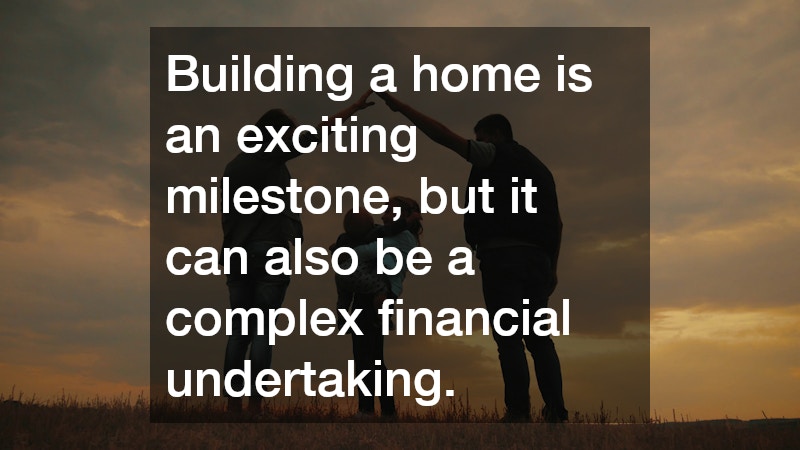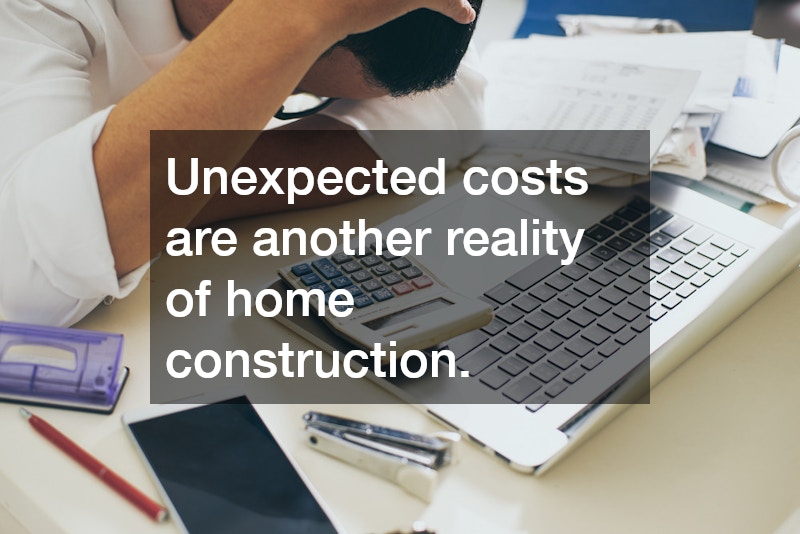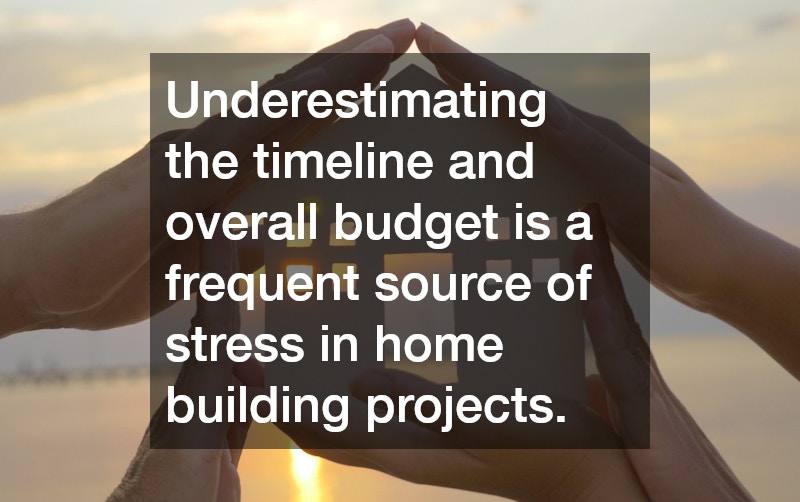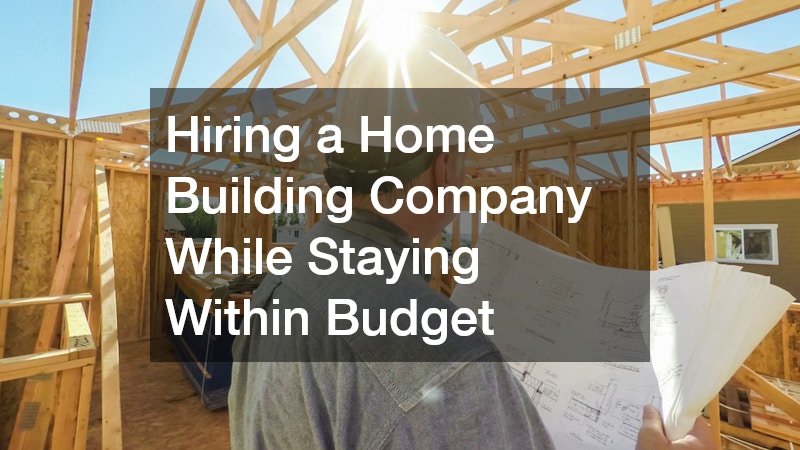Building a home is an exciting milestone, but it can also be a complex financial undertaking. Understanding how to hire a home building company while staying within budget is crucial to ensure your dream home becomes a reality without unnecessary financial strain. From choosing the right materials to evaluating builder quotes, there are many factors that influence the cost and success of a home construction project.
One of the most important steps in the process is understanding how to quote a house build accurately. This involves breaking down costs, comparing estimates, and considering potential hidden expenses. By mastering this skill, homeowners can avoid overspending, make informed decisions, and ensure a smoother building experience.
Additionally, a successful home build depends on selecting the right professionals for various aspects of construction, including roofing repair, tree services, and even specialized contractors like a shed builder or pool company. Knowledge of building materials, fencing options from a reputable fence company, and dock repair needs further supports budgeting accuracy. This article explores practical strategies to help you hire a home building company while maintaining a clear focus on your budget.

How to Estimate the Cost of Building a Home
The foundation of any home budget begins with a clear understanding of base construction costs. These costs form the core of your financial planning and encompass labor, building materials, and permits. Labor costs can fluctuate depending on the builder’s experience, the complexity of the project, and the regional market. Highly experienced builders or those in high-demand areas may charge premium rates, while newer or local contractors might offer more competitive pricing. Labor also includes subcontractors who handle specialized tasks, such as roofing repair, plumbing, or electrical work, which should be factored into your budget from the outset.
Material costs represent another significant portion of base construction expenses. This includes everything from concrete and lumber to finishing touches like cabinetry, flooring, and hardware. Selecting quality building supplies is crucial, as investing in durable materials can reduce future maintenance costs. For example, choosing premium hardwood or designer tiles will raise upfront costs, but standard-grade options may help control expenses without significantly compromising longevity. Builders often have preferred suppliers, but homeowners can sometimes source certain materials independently to save money.
Permits and inspections are an essential aspect of base construction costs. Local regulations typically require building permits, zoning approvals, and sometimes environmental assessments, all of which must be factored into your budget. Failing to include these costs can lead to delays or penalties, making early planning critical.
Identifying Additional Expenses
Beyond base construction, additional costs often arise during a home build. Landscaping is a common expense, which may involve hiring tree services, installing irrigation systems, or purchasing decorative plants and hardscaping materials. Specialty features like backyard pools through a pool company, dock repair for waterfront properties, or custom sheds by a shed builder can significantly affect the budget. Even small upgrades, like high-end fixtures or enhanced cabinetry, can add up quickly.
Unexpected costs are another reality of home construction. Weather delays, labor shortages, or design changes can quickly escalate expenses. Establishing a contingency fund—usually 10-15% of the total budget—ensures you can handle these surprises without compromising the project. Carefully evaluating custom features and optional upgrades allows you to maintain budget control while still achieving your vision.
Utilizing Cost Calculators and Quotes
Online cost calculators and contractor quotes are invaluable tools for estimating total home build expenses. By inputting details such as square footage, location, and design preferences, homeowners can receive preliminary estimates to guide budgeting decisions. Comparing multiple builder quotes provides insight into regional pricing differences and potential cost-saving opportunities. Understanding how to quote a house build accurately involves evaluating these estimates, accounting for labor, building materials, roofing repair, tree services, and specialty installations. By combining these resources, homeowners can make informed decisions and create a realistic, actionable budget that sets the stage for a successful construction project.
This approach ensures a thorough grasp of both base and additional costs, helping homeowners plan confidently while minimizing surprises.

What Factors Influence the Final Quotation
How to Compare Quotes from Different Builders
Analyzing the Scope of Work
Ensure all quotes cover the same scope of work, including labor, materials, permits, roofing repair, fence company installations, and pool company services. Comparing apples to apples prevents misinterpretation of cost differences.
Evaluating Price versus Quality
Lower quotes may save money upfront, but can compromise quality. Consider the trade-off between cost and the quality of building materials and workmanship. Investing slightly more initially may prevent expensive repairs later.
Considering Builder Recommendations and Reviews
Online reviews, testimonials, and personal referrals provide insight into a builder’s reliability and quality. Recommendations help identify builders who maintain standards and adhere to budgets.
How to Negotiate with Home Builders

Understanding the Builder’s Constraints
When hiring a home building company, understanding the builder’s constraints is crucial for a successful project. Builders face costs related to labor, building supplies, permits, subcontractor fees, and operational overhead. By gaining insight into these factors, homeowners can negotiate more effectively without pushing the builder to compromise on quality. For instance, some builders may have preferred suppliers for roofing repair or building materials, which could influence both cost and timeline. Awareness of such constraints allows you to collaborate on alternatives, such as sourcing specific materials independently or adjusting design features, while maintaining project standards. Moreover, understanding the builder’s workload and schedule—especially if they are in high demand—can prevent delays and ensure realistic expectations for project completion. Open dialogue about constraints fosters a cooperative relationship, where both parties work toward the shared goal of delivering a high-quality home within budget.
Effective Communication of Budget and Requirements
Clear and transparent communication about your budget and project requirements is equally important. Discussing financial limits upfront helps builders tailor their proposals to align with your goals, whether that involves selecting cost-effective building supplies, modifying architectural details, or prioritizing certain features like dock repair, fence company installations, or pool company services. By outlining non-negotiable elements and areas where flexibility is acceptable, you create a foundation for effective decision-making throughout the project. Clear communication also reduces misunderstandings and ensures that both parties are aligned on expectations, preventing costly revisions or delays later.
Seeking Flexible Payment Terms
Negotiating flexible payment schedules is another strategy that supports budget management. Staged payments tied to milestones—such as completion of foundation work, roofing repair, or installation of key features—allow homeowners to manage cash flow efficiently. This approach is particularly beneficial for families juggling day school expenses, business obligations, or other personal financial commitments. It also motivates the builder to meet deadlines and maintain quality, as payments are directly linked to progress. Flexible terms provide financial security while encouraging a collaborative relationship, making it easier to stay within budget without sacrificing the scope or quality of the build.
By combining an understanding of the builder’s constraints, effective communication, and flexible payment strategies, homeowners can achieve a balance between cost, quality, and timely completion, ensuring a smooth and successful construction project.
Common Pitfalls When Hiring a Builder
Ignoring Comprehensive Contract Agreements
One of the most common mistakes homeowners make is not insisting on a detailed, comprehensive contract with their builder. A well-drafted agreement serves as a roadmap for the entire project, clearly outlining the scope of work, project timelines, materials to be used, payment schedules, and specific responsibilities of all parties involved. Without such a contract, homeowners may face misunderstandings or disputes over costs, deadlines, or the quality of work. For instance, important aspects like roofing repair, dock repair, and fence company installations should be explicitly mentioned in the contract to avoid confusion or surprise charges. Comprehensive contracts also provide a reference point if any legal or insurance issues arise during the construction process. Taking the time to review, clarify, and even have a legal professional examine the contract can save significant stress and money in the long run.
Overlooking Permit and Zoning Requirements
Another critical pitfall is neglecting permit and zoning requirements. Construction projects are subject to local, state, and sometimes federal regulations, which may include building permits, environmental assessments, zoning approvals, and inspections. Failing to secure the necessary permits before starting a project can result in fines, work stoppages, or costly modifications to bring the construction into compliance. For example, even small projects like a shed builder installation or minor dock repair may require specific permits in certain areas. Homeowners should ensure their builder is familiar with local regulations and that all approvals are obtained before construction begins. This proactive approach prevents delays and ensures the project adheres to legal standards from start to finish.
Underestimating Timeline and Budget
Finally, underestimating the timeline and overall budget is a frequent source of stress in home-building projects. Construction rarely goes exactly as planned, and unforeseen circumstances such as weather delays, labor shortages, or supply chain issues can extend timelines and inflate costs. Homeowners should build a contingency into both the schedule and budget to account for these variables. Additionally, accurate cost forecasting should include all aspects of the project, from building materials and labor to services like roofing repair, tree services, or pool company installations. Planning realistically and maintaining open communication with your builder about potential changes helps keep the project on track and prevents financial surprises. Being mindful of these common pitfalls empowers homeowners to navigate the construction process confidently and ensures a smoother path to completing their dream home.
Successfully hiring a home building company while maintaining a budget requires careful planning, informed decision-making, and strategic negotiation. Understanding how to quote a house build, considering factors like material selection, labor, and additional services such as roofing repair, tree services, pool company work, shed builder projects, dock repair, and fencing from a fence company, ensures you can make informed choices.
Comparing quotes, evaluating quality versus cost, and maintaining clear communication with your builder ensure your dream home is completed efficiently and economically. Incorporating professional recommendations, monitoring building materials costs, and planning for contingencies provides a comprehensive approach to budgeting. Ultimately, informed homeowners who prioritize both quality and cost management enjoy a successful build and move into a home that meets their needs, aligns with financial goals, and provides long-term value. Mastering how to quote a house build is central to achieving these outcomes and ensures a transparent, efficient, and cost-effective construction process.

